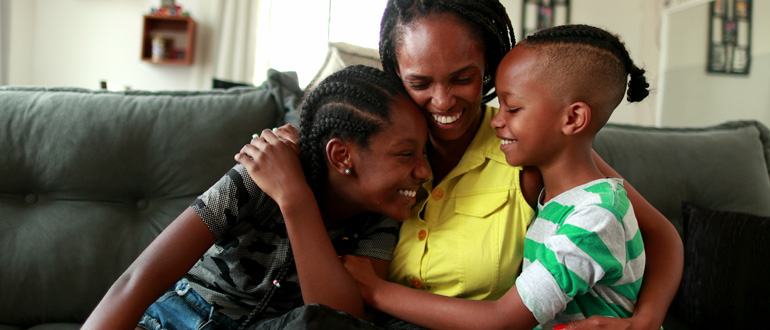Poverty passed down from generation to generation

Every parent wants their child to have a better life than they did. They want them to be more successful, wealthier, healthier, and happier. But that doesn’t always happen.
If you have experienced poverty as a child, you are “much more likely to be poor in early and middle adulthood than are those who were never poor….Poverty rates for adults who were poor during childhood are much higher, especially for those individuals with high levels of exposure to poverty during childhood.” In other words, the more time you spend in poverty as a child, the more likely that you will experience poverty as an adult.
And, according to the National Center for Children in Poverty, “African-Americans are more likely than whites to be poor throughout early and middle adulthood.” Not only that, but the amount of time that Black children spend in poverty impacts them more: “It also appears that low-to-moderate levels of poverty have a particularly disproportionate impact on African-Americans’ [upward economic] mobility as compared to whites.”
Why childhood poverty continues into adulthood
The poverty of previous generations can affect the ability of the next generation to achieve upward income mobility in several ways. For example, children who grow up in poverty tend to live in school districts with fewer resources, learn from teachers with less experience, and have access to fewer learning tools. This can influence their ability to thrive in school environments as they continue their education. That, in turn, can affect their employment opportunities.
Beyond that, as children who grew up in poverty become adults, they have less of a safety net should something go wrong. While they may receive a great deal of emotional support from their families, they often cannot depend on them for financial assistance, such as co-signing for credit or borrowing money in a crisis.
Intergenerational poverty and health
“Poverty in early childhood is directly related to a child’s…risk of health conditions, such as cardio-metabolic disease and arthritis, which limit adult work,” according to an article in Pediatrics journal. Additionally, “There is mounting evidence that poor mental health is a key mechanism in the intergenerational transmission of disadvantage.”
In other words, childhood poverty makes suffering from both physical and mental ailments more likely. Those conditions follow children who grew up in poverty to adulthood and affect their ability to work—which means they remain in poverty. If they have children of their own, the cycle continues.
Breaking the cycle
Ensuring health equity makes it more likely that children who grow up in poverty can take strides toward financial stability in adulthood. Health Care Access Now dispatches Community Health Workers (CHWs) into the field to work with vulnerable community members, many of whom live in poverty, to maintain health despite suffering from chronic issues. Its Maternal & Child program pairs CHWs with pregnant and new mothers to reduce preterm births and establish ongoing medical care for mothers and their children.
Living in poverty makes everything more difficult. Equitable health care for adults and children living in poverty can make a difference.






